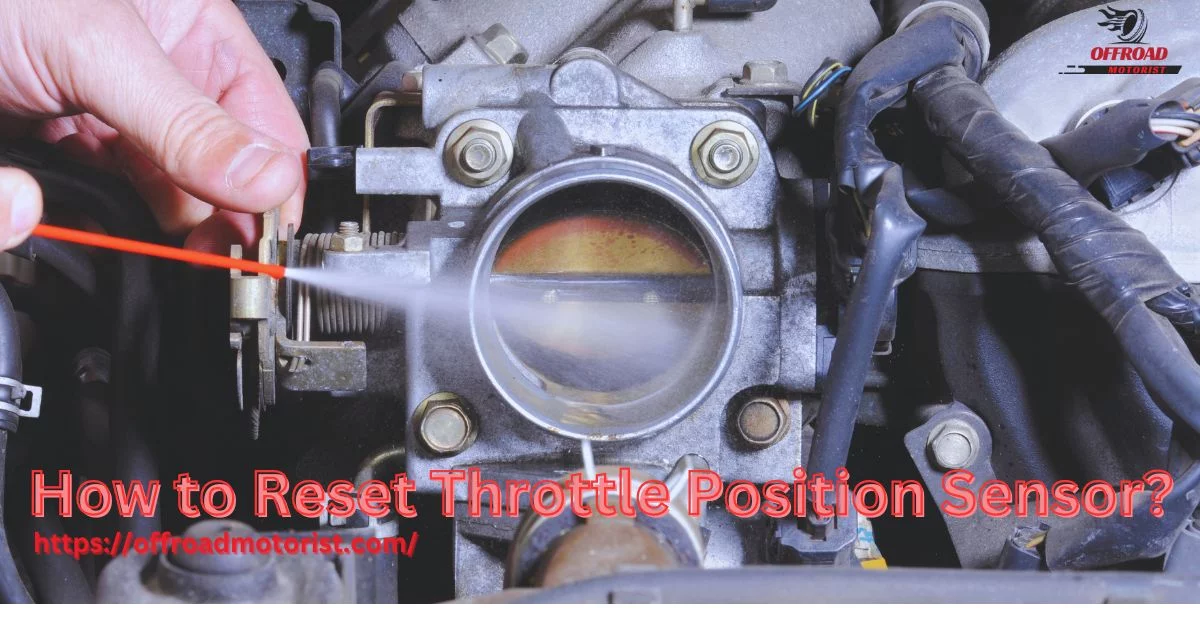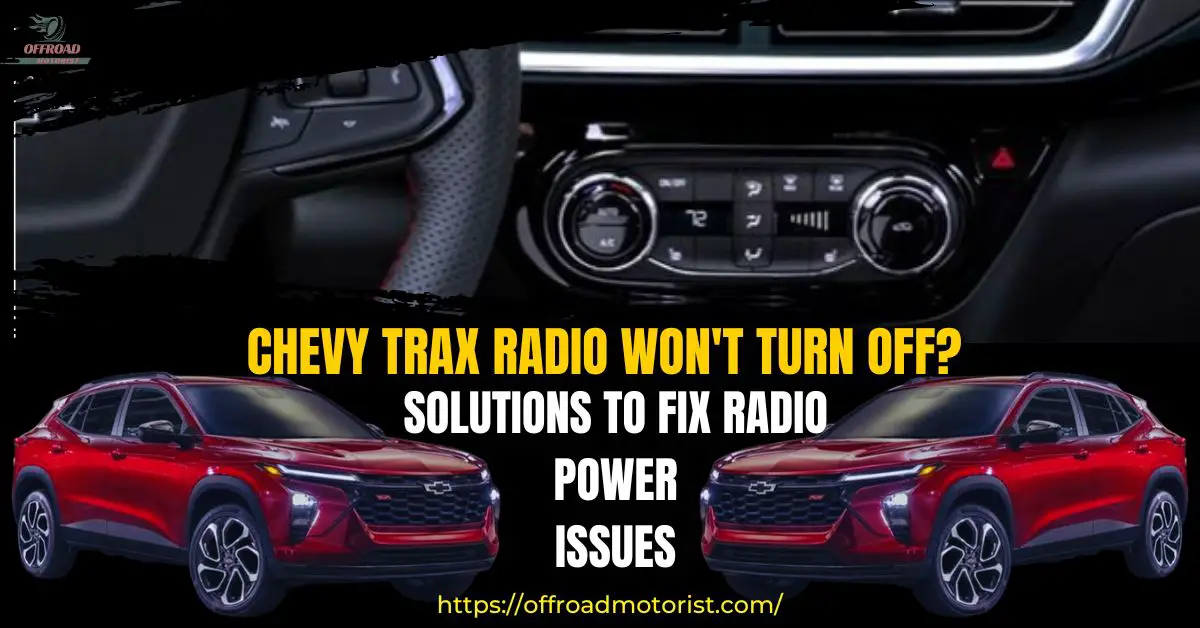Chevy Truck Intermittent Starting Problems [07 Common Causes and Best Solutions]
Chevy trucks are known for reliability and power, but even the most dependable vehicles can experience intermittent starting problems. These issues can be frustrating and potentially dangerous, leaving you stranded in the middle of nowhere.
Diagnosing and fixing the problem promptly is crucial to avoid further damage and prevent being stranded.
In this article, we’ll discuss the common symptoms and 07 causes of Chevy truck intermittent starting problems and provide you with the best solutions to fix the issue.
Common Symptoms of Intermittent Starting Problems
Intermittent starting problems in Chevy trucks can manifest in different ways. Here are some of the most common symptoms to look out for:
- Starter clicking sound
- The engine cranks but won’t start
- Slow cranking
- No cranking
Pay attention to what happens when you turn the key in the ignition to recognize these symptoms. Listen for any unusual sounds and observe how the engine responds.
Remember that these symptoms can be intermittent and may only occur when you try to start the engine.
Causes of Intermittent Starting Problems
Several factors can cause intermittent starting problems in Chevy trucks. Here are the top 07 causes of intermittent starting problems:
1. Bad Battery
A bad battery is one of Chevy trucks’ most common causes of intermittent starting problems. A weak or dead battery may prevent the engine from starting, even though it cranks.
2. Faulty Starter
A faulty starter can also cause intermittent starting problems in Chevy trucks. A lousy starter may produce a clicking sound when you turn the key or may not engage with the engine properly.
3. Ignition Switch
The ignition switch sends power to the starter when you turn the key. A faulty ignition switch can prevent the starter from receiving power, resulting in no cranking.
4. Fuel Pump
The fuel pump is responsible for providing fuel to the engine. A faulty fuel pump can prevent the engine from starting, even if the starter is working correctly.
5. Faulty Alternator
The alternator is a crucial component responsible for charging the battery while the engine runs. If the alternator is faulty, it might not generate enough power to charge the battery, leading to a weak or dead battery.
6. Clogged Fuel Filter
The fuel filter has the critical role of removing impurities and debris from the fuel before it enters the engine. If the filter is clogged, it might prevent the engine from receiving the necessary fuel to start.
7. Faulty Starter Solenoid
A faulty starter solenoid could also cause intermittent starting problems in Chevy trucks. The starter solenoid plays a vital role in engaging the starter with the engine. If the solenoid is faulty, it might not engage with the engine correctly, leading to a clicking sound or no cranking.
How to Diagnose & Fix Intermittent Starting Problems
Diagnosing intermittent starting problems in Chevy trucks can seem daunting, but you can quickly identify and fix the issue with the right tools and knowledge. Here are some steps to diagnose the specific cause of the problem:
Step 1: Check the Battery
The first step is to check the battery with a battery tester or multimeter. A healthy battery should read around 12.6 volts. If the battery is weak or dead, replace it with a new one. If the battery is in good condition, move on to the next step.
Step 2: Test the Starter
Next, test the starter with a starter test kit or multimeter. A properly functioning starter should produce around 10 to 12 volts. If the voltage is low or nonexistent, replace the starter with a new one. If the starter is in good condition, move on to the next step.
Step 3: Examine the Ignition Switch
Check the ignition switch for any visible damage or wear. If the switch is faulty, replace it with a new one. Use a multimeter to test the switch’s voltage to ensure it works correctly.
Step 4: Test the Fuel Pump
Use a fuel pressure gauge to test the fuel pressure before and after the fuel pressure regulator. If the pressure is considerably lower after the filter, it indicates a clogged fuel filter.
Replace the filter with a new one. If the pressure is still low or nonexistent, test the fuel pump with a fuel pressure gauge. If the fuel pump is faulty, replace it with a new one.
Step 5: Inspect the Alternator
Use a multimeter to measure the voltage while the engine is running. A properly functioning alternator should produce a voltage of around 13.5 to 14.5 volts. If the voltage is low or nonexistent, it’s a sign of a faulty alternator, and replacing it with a new one is recommended.
Step 6: Check the Fuel Filter
A clogged fuel filter can prevent the engine from receiving enough fuel to start. To diagnose a clogged fuel filter, use a fuel pressure gauge to test the fuel pressure before and after the filter. If the pressure is significantly lower after the filter, it indicates a clogged fuel filter, and it’s advised to replace it with a new one.
Step 7: Check the Starter Solenoid
Use a multimeter to measure the voltage at the solenoid. If the voltage is low or nonexistent, it indicates a faulty starter solenoid. Replace the solenoid with a new one.
By following these steps, you can identify, diagnose, and fix the specific cause of the intermittent starting problem in your Chevy truck. Remember to use the appropriate tools and safety equipment for diagnostics or repairs.
If you’re uncomfortable diagnosing or fixing the issue, take your truck to a qualified mechanic for further evaluation and repair.
Preventing Intermittent Starting Problems
Intermittent starting problems can be frustrating and potentially dangerous when you’re away from home. Fortunately, there are several steps you can take to prevent these problems in your Chevy truck.
01. Regular maintenance:
Regular maintenance is essential to keep your Chevy truck in good condition. Ensure to follow the manufacturer’s recommended maintenance schedule, which typically includes oil changes, air filter replacements, and other important services.
Keeping up with your truck’s maintenance can help prevent starting problems caused by worn-out parts or neglected maintenance.
02. Battery checks:
The battery is the heart of your truck’s electrical system, so it’s important to check it regularly. You should test your battery’s voltage and charge level every few months and replace it if it’s not holding a charge or showing signs of wear.
03. Keep your fuel tank full:
Running your truck on a nearly empty tank can strain your fuel pump and cause starting problems. Try to keep your fuel tank at least half full to ensure the fuel pump has enough fuel to operate smoothly.
04. keep the battery terminals clean and corrosion free:
Try to keep your fuel tank at least half full to ensure the fuel pump has enough fuel to operate smoothly. Also, parking your truck in a garage or under a carport can help protect it from the elements and prevent weather-related issues.
FAQs on Chevy Truck Intermittent Starting Problems
In this section, we’ll provide the answers to some of the most frequently asked questions about Chevy truck intermittent starting problems:
What causes intermittent starting problems in a Chevy truck?
Various issues, including a faulty battery, starter motor, ignition switch, fuel pump, or wiring, can cause intermittent starting problems in Chevy trucks. Other potential causes could include a lousy alternator, corroded terminals, or a malfunctioning security system.
Why does my Chevy truck start sometimes and not others?
If your Chevy truck starts sometimes but not others, it’s likely due to a problem with the battery or the starter motor. These components may fail and only work intermittently, causing the truck to start sometimes but not others. Other potential causes could include a faulty ignition switch, fuel pump, or wiring issue.
What are the signs of a bad starter in a Chevy truck?
The signs of a bad starter in a Chevy truck include a clicking sound when you turn the key, a grinding noise when you try to start the engine, or the engine not starting at all. If you notice these symptoms, a qualified mechanic must inspect your Chevy truck to diagnose the issue.
Can a bad battery cause intermittent starting problems in a Chevy truck?
A bad battery can cause intermittent starting problems in a Chevy truck. If the battery is weak or failing, it may not have enough power to start the engine consistently, causing intermittent starting issues. It’s essential to have your battery tested regularly and replaced as needed to avoid starting problems.
How do I diagnose an intermittent starting problem in my Chevy truck?
To diagnose an intermittent starting problem in your Chevy truck, check the battery and starter motor to ensure they function correctly. You may also want to inspect the ignition switch, fuel pump, and wiring for any signs of damage or wear. If you cannot diagnose the issue, taking your truck to a qualified mechanic for further inspection is recommended.
What is the average cost to fix an intermittent starting problem in a Chevy truck?
The cost to fix an intermittent starting problem in a Chevy truck can vary depending on the cause of the issue. The cost may be relatively low if it’s a simple fix, such as a loose wire or a bad battery.
However, the cost could be higher if the problem is more complex, such as a faulty starter motor or fuel pump. On average, you can expect to pay between $100 and $500 to fix an intermittent starting problem in a Chevy truck.
How do I know if the fuel pump is causing intermittent starting problems in my Chevy truck?
If the fuel pump is causing intermittent starting problems in your Chevy truck, you may notice the engine cranking but not starting or starting and then stalling shortly after.
You may also hear a whining noise from the fuel pump when you turn the key. If you suspect a problem with the fuel pump, it’s important to have it inspected and replaced if necessary.
Final Thought
Intermittent starting problems can be frustrating and potentially dangerous, especially when you’re away from home. Fortunately, with the proper knowledge and tools, you can identify and fix the problem quickly.
Regular maintenance, battery checks, and keeping your fuel tank at least half full are all essential to prevent starting problems in your Chevy truck. If you experience any typical symptoms of intermittent starting problems, take action promptly to avoid further damage and prevent being stranded.
By following the steps outlined in this article or seeking the help of a qualified mechanic, you can get your Chevy truck back on the road and enjoy its reliability and power.


![Chevy Transfer Case Interchange Chart [Everything you need to Know] chevy transfer case interchange chart](https://offroadmotorist.com/wp-content/uploads/2023/03/chevy-transfer-case-interchange-chart-150x150.jpg)









